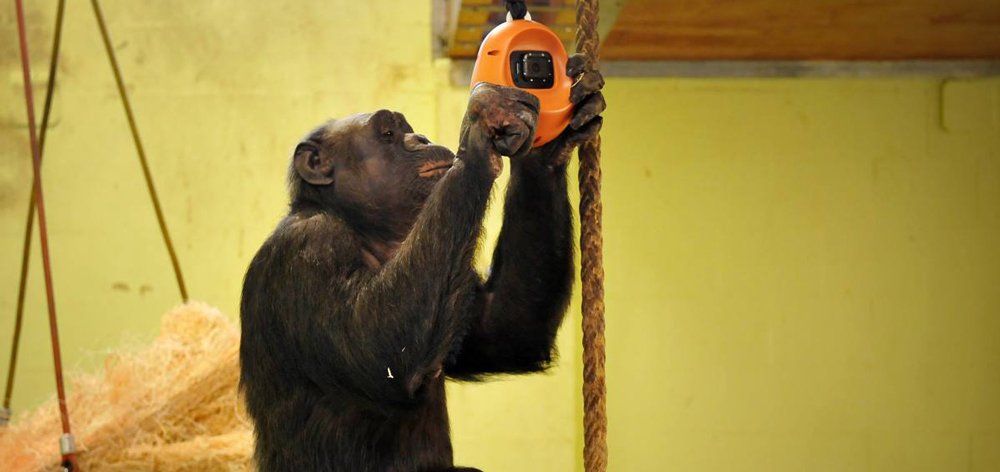
Mojo is an overweight male chimpanzee aged somewhere between 40-45 years who spent over 30 years in a humanised relationship with his owner in Belgium: eating junk food, drinking beer and not having contact with other chimps. For social animals like chimpanzees, this lack of contact with other apes is extremely detrimental to their well-being. The Chimpanzee Complex follows Mojo’s journey in a Dutch rescue center for traumatised chimps and the attempt of the staff to re-socialise and, ultimately, save him.
Dutch director Marc Schmidt attempts to tackle the ethical and practical quandary that the caretakers find themselves in when faced with Mojo. Put in the shoes of the staff, the audience also go on their journey; when Mojo is first brought in, the caretakers emphasise that they try to dehumanise the chimps in an attempt to remain objective. This is initially put into the context of trying to avoid human misconceptions of chimps being ‘cute’. The staff emphasise the violent nature of chimps, with one remarking upon them as “manipulative murder machines”. This effort to maintain objectivity is, presumably, to make the hard decisions easier to make, and from the outset the audience is introduced to the idea that Mojo may be beyond saving. Noting the decades of damage done by humanisation, the caretakers are doubtful as to whether a re-socialisation process will work with Mojo, and as The Chimpanzee Complex unfolds the staff begin to grapple with the disappointing reality: Mojo is not improving.
While the caretakers are going on their own emotional journey, the film seems hesitant to firmly align itself anywhere. While The Chimpanzee Complex seems to give a lot of credence to what the caretakers are saying regarding the need to dehumanise the chimps, the film also seems to romanticise the footage. There is a veritable bounty of puzzling hi-def, close-up shots of chimp hair and footage of staff recounting dreams they’ve had about the chimps escaping that seems to run counter to the clinical message the film tries to emphasise elsewhere.
The material in The Chimpanzee Complex is largely repetitive – alternating between the aforementioned hair close-ups, roundtable discussions regarding euthanasia, and finally, long periods of footage of chimps in enclosures; this footage is presented with no concession to the fact that the audience are liable to misinterpret what behaviours they may be displaying. Certainly, the best scenes in the film are when the focus is on the chimps, but the vast majority of this is so poorly edited that it is boring to the point of disengaging and interspersed with loud spurts of unexplained chimpanzee action. In the third act, we are introduced to a recent arrival: Macario is a young male who comes from a private home in Spain. Macario was damaged by inattentive owners who fed him haphazardly, leading to his learned pattern of forced regurgitation and consumption of his own vomit. The focus quickly jumps back onto Mojo with no return to Macario, whose inclusion in The Chimpanzee Complex seems to exist for no other reason than to replay footage of him eating his own purged vomit over and over.
In the last ten minutes, the caretakers begin to grapple with the euthanasia question: is it worth continued efforts to re-socialise him, and will the meantime spent alone damage him even further? In this emotional and fascinating footage, the film improves vastly. Finally, The Chimpanzee Complex seems to capture a tangible emotional climate and pulls itself out of its attachment to aimless footage. Unfortunately, it’s too little too late by then: the burden of the previous sixty minutes finds the film uncertain of itself, and the result is disappointing. The ending seems appropriately ambiguous to the sad reality of animal rescue, however, a final on-text postscript comes barging in and cements the issues of The Chimpanzee Complex: a disengaging documentary that had a rich source material, but could never make up its mind as to where it would go with Mojo’s story. Not dissimilar to the caretakers quandary, then, but nowhere near as emotionally beguiling.
